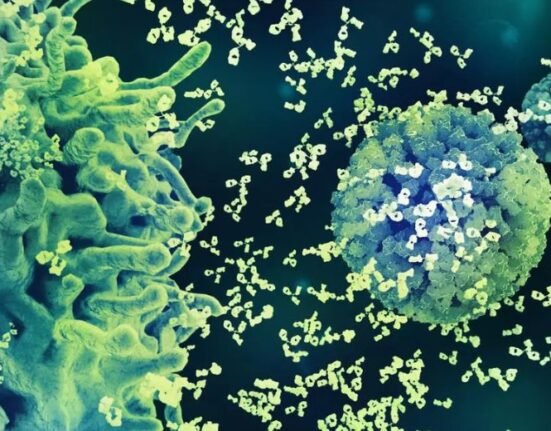HQ Team
December 4, 2023: Eli Lilly and Company got a second accelerated approval from the Food and Drug Administration for its blood cancer drug Jaypirca.
The second approval is for treating adult patients with choric lymphocytic leukaemia or small lymphocytic lymphoma. The choric form develops from a type of white blood cell called B cells. It progresses slowly, usually affecting older adults.
Chronic lymphocytic may not cause any symptoms for years. When symptoms do occur, they may include swollen lymph nodes, fatigue and easy bruising.
Eli Lilly got the first FDA approval for Jaypirca in January, for treating adult patients with relapsed or refractory mantle cell lymphoma — a form of blood cancer that starts in white blood cells in your lymph nodes.
There’s no cure for mantle cell lymphoma, but some treatments put the condition into remission.
Further trials on
Eli Lilly is conducting further trials, as required by the FDA, on Jaypirca in chronic and small lymphocytic cancer in multiple last-stage trials, according to a company statement.
The FDA’s final clearance for the drug will be contingent upon verification and description of clinical benefit in a confirmatory trial.
The labelling for Jaypirca contains warnings and precautions for infections, haemorrhage, cytopenias, cardiac arrhythmias, second primary malignancies, and embryo-fetal toxicity.
The FDA approval was based on data from a subset of patients in the early and mid-stage trials. The assessment of efficacy was based on 108 patients with cancer treated with Jaypirca, who were previously treated with at least two prior lines of therapy.
“Seventy-seven per cent of patients discontinued the last Bruton’s tyrosine kinase inhibitor for refractory or progressive disease,” according to the statement.
Efficacy was established based on the overall response rate and duration of response as assessed by an independent review committee.
Safety issues
The safety of Jaypirca was evaluated in the trial in 110 patients with blood cancers, with 98% receiving at least two prior lines of systemic therapy, including inhibitors — which have the effect of squelching something, shutting it down, or slowing it.
Adverse reactions led to dose reductions in 3.6%, treatment interruption in 42%, and permanent discontinuation of Jaypirca in 9% of patients.
The reactions resulted in permanent discontinuation of Jaypirca in more than 1% of patients including second primary malignancy, COVID-19, and sepsis.
“Serious adverse reactions occurred in 56% of patients who received Jaypirca,” according to the statement.
Chronic and small forms of blood cancers are slow-growing non-Hodgkin lymphomas that develop from white blood cells known as lymphocytes.
The chronic type is one of the most common types of adult leukaemia. In the US, it accounts for about one-quarter of the new cases of leukaemia and approximately 18,740 new cases were diagnosed this year.








